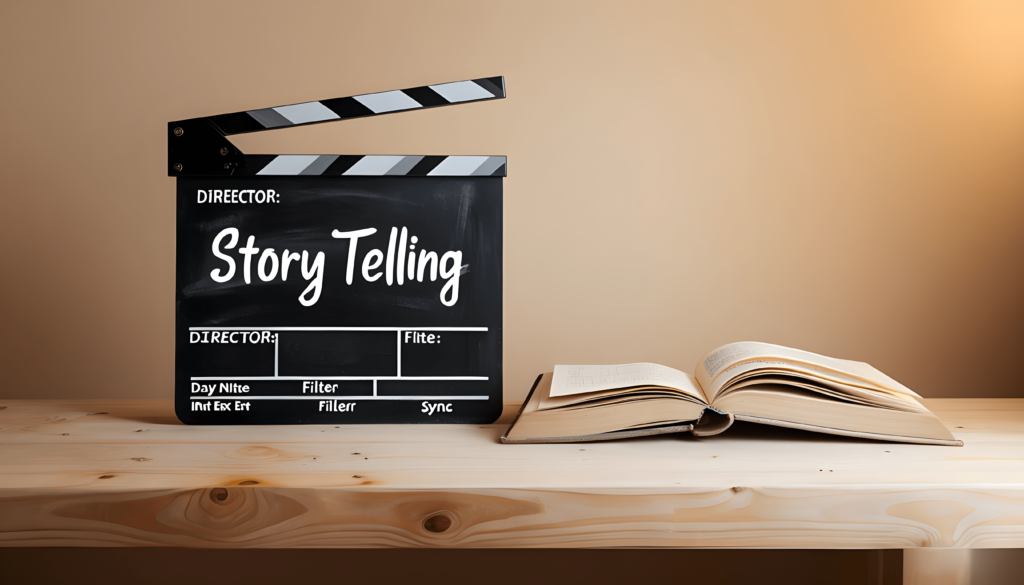
Table of Contents
ToggleTABLE OF CONTENT
How to get better at script writing?
Why Script Writing is a Skill Worth Mastering
Step 1: Understand the Basics of Script Writing
Step 2: Read Scripts Like a Writer
Step 3: Watch Movies and Analyze Them
Step 4: Master the Art of Storytelling
Step 5: Write Authentic Dialogue
Step 6: Practice Formatting Like a Pro
Step 7: Write, Rewrite, and Rewrite Again
Step 8: Join Script Writing Communities
Step 9: Study Screenwriting Books and Courses
Step 10: Build a Writing Routine
Bonus Tips on how to Get Better at Script Writing
FAQs: How to Get Better at Script Writing
How to get better at script writing?
No doubt this is a question of your life! But today we will surely try to help you out to find the answer to this very question.
“Let your characters talk to each other and do things. Spend time with them — they’ll tell you who they are and what they’re up to.”
“To make a great film you need three things: the script, the script, and the script.”
Got some inspiration! Now we have some questions for you as you want to become better at Scriptwriting.
Have you ever dreamed of writing scripts that captivate audiences and bring characters to life?
Actually, Scriptwriting is an art that blends storytelling, structure, and creativity. Whether you’re a budding screenwriter or an experienced writer looking to sharpen your skills, learning how to get better at script writing can transform your storytelling abilities and open doors in the entertainment industry.
In your Script Writing or Screenwriting Journey, this article will walk you through practical tips, essential tools, and proven techniques to elevate your Craft game.
Now here is the another crucial question that you should ask to yourself-

Why Script Writing is a Skill Worth Mastering
Scriptwriting is more than just putting words on paper. It’s about creating vivid worlds, unforgettable characters, and compelling dialogue that connects with audiences. A well-crafted script is the backbone of any successful film, TV show, or play. Mastering this skill can:
Unlock your creativity: Express unique ideas and stories.
Boost career opportunities: Join the dynamic entertainment industry.
Enhance storytelling: Improve your ability to connect with audiences emotionally.
If you’ve ever felt stuck or unsure where to begin, don’t worry—we’ve all been there. Let’s dive into actionable steps to help you find how to get better at script writing?

Step 1: Understand the Basics of Script Writing
Before diving into the creative process, it’s crucial to understand the foundational elements of a script. A good script has:
A compelling story: Every script begins with a strong idea or premise.
Clear structure: Typically follows a three-act format (beginning, middle, and end).
Engaging characters: Relatable and well-developed characters that drive the plot.
Snappy dialogue: Conversations that reveal personality and move the story forward.
Familiarize yourself with screenwriting terminology like scenes, beats, and formatting conventions to ensure your script meets industry standards.
Step 2: Read Scripts Like a Writer
One of the best ways to learn script writing is by reading scripts from successful films or TV shows. Websites like Simply Scripts and IMSDB offer free access to screenplays.
When reading scripts, ask yourself:
How is the story structured?
What makes the dialogue engaging?
How are emotions conveyed through action and description?
Pro Tip: Start with your favorite movies or TV shows to make the process enjoyable.
Step 3: Watch Movies and Analyze Them
Watching movies is not just entertainment—it’s research. Analyze scripts visually by paying attention to:
Story arcs: How does the plot evolve?
Character development: What makes the protagonist relatable?
Pacing: How do scenes transition smoothly?
Pause the movie to jot down notes or identify standout scenes. Over time, you’ll start recognizing patterns and techniques used by successful screenwriters.
Step 4: Master the Art of Storytelling
At the heart of every great script is an unforgettable story. To get better at storytelling:
Create a strong premise: Ensure your story idea is unique, clear, and engaging.
Build emotional stakes: Make the audience care about the outcome.
Follow a structure: Use frameworks like the three-act structure or The Hero’s Journey.
Here’s a quick example of the three-act structure:
Act 1: Set up the world, introduce the protagonist, and establish conflict.
Act 2: Escalate the tension with obstacles and challenges.
Act 3: Deliver a satisfying resolution.
Step 5: Write Authentic Dialogue
Dialogue is your chance to reveal character personalities and move the plot forward. Great dialogue feels natural and serves a purpose. Here’s how to improve your dialogue writing:
Keep it concise: Avoid lengthy speeches.
Reflect character voices: Each character should have a distinct way of speaking.
Show, don’t tell: Use subtext to imply emotions and motivations.
Exercise: Listen to real conversations around you and note how people talk. Incorporate that authenticity into your scripts.
Step 6: Practice Formatting Like a Pro
Proper formatting is non-negotiable in scriptwriting. Industry professionals expect your script to adhere to standard conventions, such as:
12-point Courier font for the entire script.
Character names in ALL CAPS before dialogue.
Scene headings (slug lines) formatted as: INT.
LOCATION – DAY/NIGHT.
Use tools like Final Draft, Celtx, or WriterDuet to ensure your formatting is correct.
Step 7: Write, Rewrite, and Rewrite Again
Your first draft is never your final draft—and that’s okay! Writing is all about rewriting. You just have to focus on:
Getting the first draft done: Don’t aim for perfection initially; just write.
Identifying weak spots: Look for plot holes, dull dialogue, or pacing issues.
Seeking feedback: Share your script with peers or join writing communities.
Step 8: Join Script Writing Communities
Surrounding yourself with fellow writers can be incredibly motivating. Online forums, local workshops, and social media groups allow you to:
- Exchange ideas and feedback.
- Learn from experienced screenwriters.
- Stay updated on industry trends.
- Popular communities include Reddit’s Screenwriting subreddit and forums like Stage 32.
Step 9: Study Screenwriting Books and Courses
Investing in learning resources can accelerate your growth. Here are a few highly recommended books:
Save the Cat! by Blake Snyder: A go-to guide for screenwriters.
Story by Robert McKee: A deep dive into storytelling principles.
The Anatomy of Story by John Truby: A practical guide to crafting compelling narratives.
Here, are some Best books for Developing Writing skills!
Additionally, online courses on platforms like MasterClass (featuring Aaron Sorkin) or Udemy can provide invaluable insights.
Step 10: Build a Writing Routine
Consistency is key to improving as a scriptwriter. Here’s how to establish a routine:
Set aside time daily: Even 30 minutes can make a difference.
Set goals: Complete a scene or work on dialogue every day.
Create a conducive environment: Minimize distractions for focused writing sessions.

Bonus Tips on how to Get Better at Script Writing
Embrace criticism: Feedback is a gift; use it to refine your work.
Watch behind-the-scenes content: Understand how directors and actors interpret scripts.
Experiment: Don’t be afraid to try different genres and styles.
Stay persistent: Rejection is part of the journey—keep writing!
FAQs: How to Get Better at Script Writing
Q1: How long does it take to become a good script writer?
A: It depends on your dedication and practice. With consistent effort, you can see improvement in months, but mastery may take years.
Q2: Can I learn script writing without formal education?
A: Absolutely! Many successful screenwriters are self-taught. Utilize books, online resources, and practice regularly.
Q3: What’s the best way to overcome writer’s block?
A: Step away for a bit, try writing prompts, or brainstorm with friends to reignite creativity.
Conclusion
Learning how to get better at script writing is a journey of creativity, persistence, and growth. By reading scripts, practicing daily, and embracing feedback, you can transform your ideas into compelling stories that captivate audiences. Remember, every great writer started as a beginner—what matters is your commitment to improving.
All the best for your writing journey! let your creativity flow!




